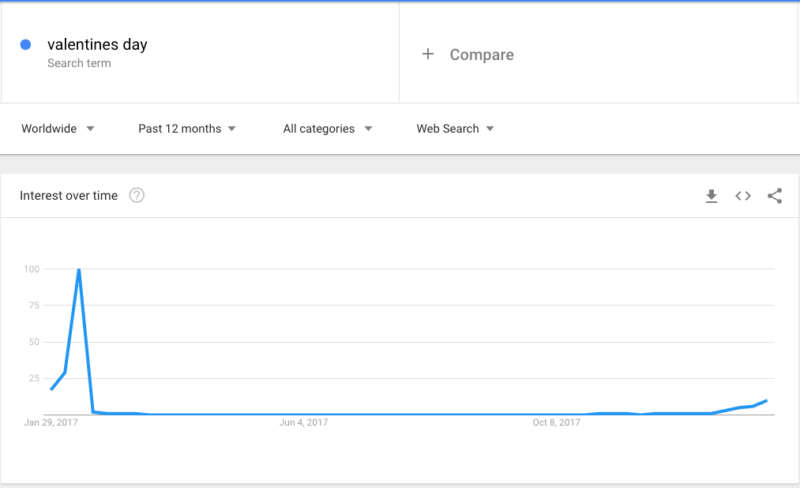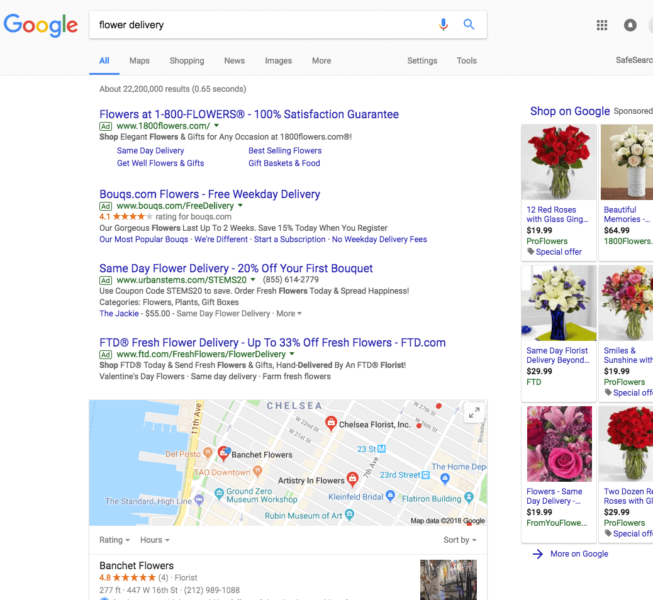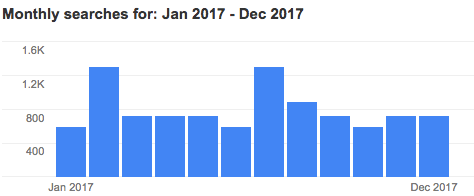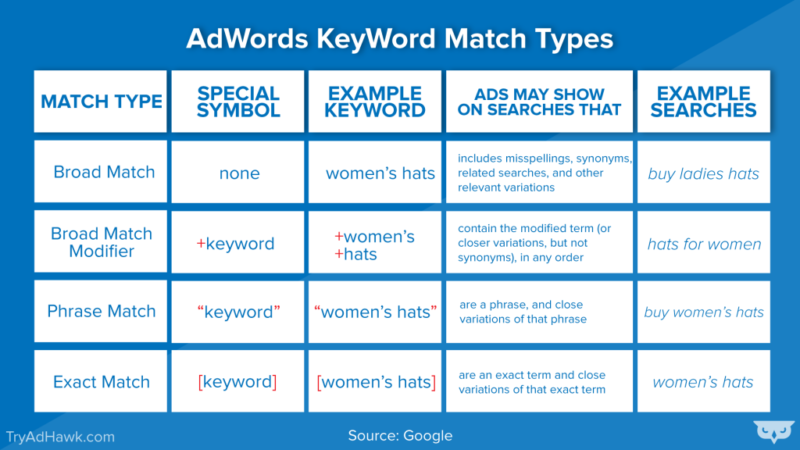Give the gift of Adwords love this Valentine’s Day by using these six tactics from Contributor Todd Saunders to boost your PPC efforts.
If you’ve visited any local pharmacy recently, you have a pretty good idea of what holiday is coming up. Yup, that one with the hearts, chocolates, flowers and teddy bears.
It’s not Christmas or New Year’s, but Valentine’s Day is a huge opportunity for all businesses, not just flower delivery and giant teddy bear manufacturers. There’s just as much opportunity to optimize your return on investment (ROI) improvements if you know the right strategies.
Let’s dig into the following pay-per-click (PPC) tactics so you avoid situations like this one and learn how to maximize your advertising efforts on Valentine’s Day.
Is advertising on Valentine’s Day worth it?
Look, people aren’t only looking for flowers, chocolates and cute cards on Valentine’s Day; there are plenty of people who want to spend the day out treating themselves, reserving a nice day at the spa or grabbing a drink with friends. Using Google Trends and the Keyword Planner, we see there is a market for Valentine promotion, so advertisers should pay attention.
Let’s start by looking at the floral industry, which dominates AdWords on Valentine’s Day. Using “flower delivery,” we see there are no organic search results above the fold.
Whether you are an e-commerce store or a local restaurant, there are still plenty of opportunities to capitalize on Valentine’s Day using promotions beyond these typical search terms.
Elephant pants are a gift of love
You would probably never think to associate “men’s elephant pants” with Valentine’s Day, but apparently, a lot of them are given as gifts on this holiday. Elephant pants are a great example of capitalizing on unusual terms.
Tons of seasonal keywords are overlooked because the search volume numbers in the Google keyword planner are averaged out over a 12-month period, making it hard to pick them out. Keep an eye on monthly search volumes that may fluctuate due to seasonality.
Let’s take a look at another term, “DIY Valentines Day cards,” which sees 15.6 million searches in February and barely any the rest of the year.
If you are in the crafting business, this is good information to take advantage of!
Plan your date
Once you gather data and identify which products and services are worth promoting this Valentine’s Day, evaluate your approach. There are two search terms to be familiar with:
Keywords: Valentines ideas for her
January Search Volume: 110,000
February Search Volume: 550,000
Keywords: Valentines ideas for him
January Search Volume: 246,000
February Search Volume: 135,000
If you are selling Valentine products for men, you’ll want to target women with a higher bid in January than February, and vice versa for women’s gifts.
Interpret that however you want. Once you get an idea of search volume trends, set your AdWords rules and schedule your bid adjustments ahead of time.
Let historical data guide you
One of the most overlooked strategies of AdWords is gathering the right data. Even if it’s just a few dollars per day, running consistent campaigns for brand and key terms gives you a warehouse of data with unlimited applications.
One application specific to Valentine’s is leveraging historical data inside your search terms report.
In AdWords, navigate to your search terms report and adjust your date range to three weeks leading up to February 14 and the week before. Since the search terms show all searches your ad displayed for, you can make note of Valentine-related searches that were irrelevant or diamonds in the rough.
If it’s hard to isolate your seasonal campaign performance, and these annual events are important to your business, consider building separate campaigns for Valentine’s Day and other holidays. It will be super-easy to control budgets, analyze historical data and improve your account performance year after year.
Use match to find the perfect match and type
Now that we know your Search Terms report will surface your best and worst performers, it will be easier to take your worst performers and dump them into a negative keyword list.
Money spent with no results is pretty straightforward; they have to go. But what about your search terms that are driving traffic or conversions?
Sure, you can add them to your keyword list and increase your bids. But you can take it a step farther by assigning your keywords the correct match types and breaking them into specific campaigns to maximize control and results. Here’s a quick refresher:
My favorite strategy is to slot positively performing keywords in one of three search campaigns:
- Brand.
- Evergreen.
- Prospecting.
The first two are straightforward. Isolate brand search terms so you can compare them, and prevent other campaigns from getting inflated by also showing for brand (brand is almost always going to perform significantly better than non-brand).
Evergreen is a place to store exact-match keywords you know for a fact can produce consistently.
Prospecting is where you can discover new opportunities to funnel into the evergreen campaign. Pick out those middle-of-the-road keywords with potential and incorporate them into this campaign, then keep an eye on performance.
Target them married folk
Many of you know that display, Gmail and YouTube ads let you target based on demographics, interests and whether the person is in-market for a certain product. But there are an additional four options to consider:
- Demographics. Target by age, gender, household income or parental status.
- Affinity audiences. Target by interests, hobbies and behaviors.
- In-market audiences. Target people who are making searches with high purchase intent and are looking to purchase a product or service that you offer.
- Life events. Reach people who’ve reached a certain milestone, such as married couples, newlyweds or recently engaged couples.
If things go particularly well, you can check your placements report and see if there is a correlation between targeting segments who convert and the websites where they see your ads.
Scheduled sitelinks & promotional extensions
Sitelinks and promotional extensions will help your ad stand out — always a good thing in advertising.
If you don’t want to create a completely new campaign, you can schedule AdWords sitelink extensions to pop up every holiday season. They’re super-flexible because you can add any information you want, including store hours, or a direct link to a specific product.
Promotional extensions are even better because they will bold the holiday sale and link directly to your special offer. For Valentine’s Day, advertisers can think about running it from January 15 to February 28.
Here are examples of four ways an advertiser can promote a sale:
- Monetary discount. $10 off your first order!
- Up to monetary discount. Up to $25 off!
- Percent discount. 5% off your first order!
- Up to percent discount. Up to 25% off your first order!
Promotional extensions grab searchers’ attention and set expectations as they land and shop your site after the click.
Add a countdown clock
Countdown clocks are a classic but effective sales gimmick that help push a target audience to click and convert.
In your search ad, you can input an end-date to your campaign, which Google will use to change your ad copy depending on the length of the deal.
For example, three hours until your input promotion ends, your ad will show “This deal ends in three hours!” Here is what it would look like for Mary’s Handmade Gifts:
Good luck with your Valentine’s Day PPC campaigns!








